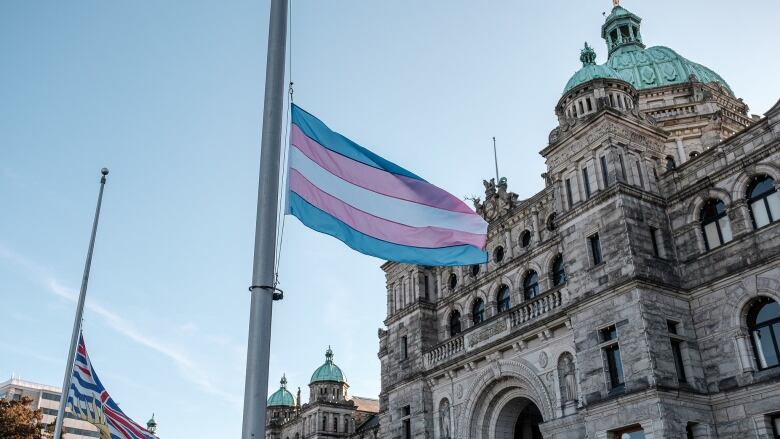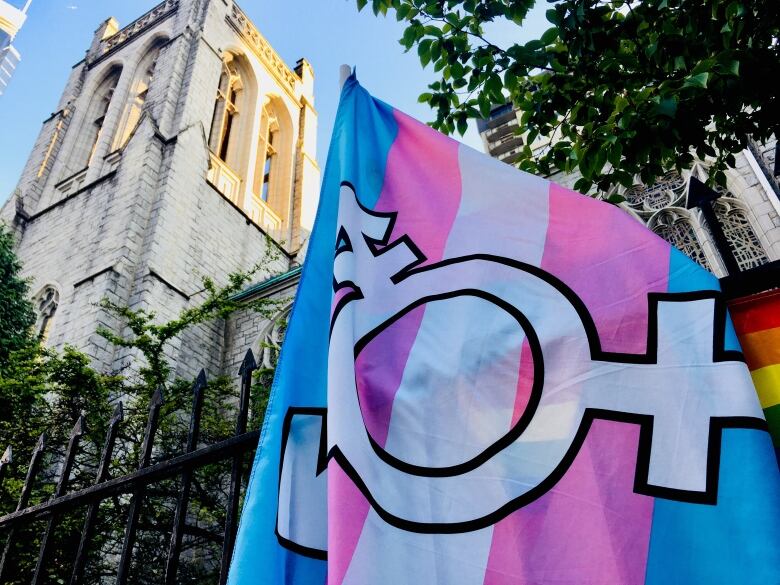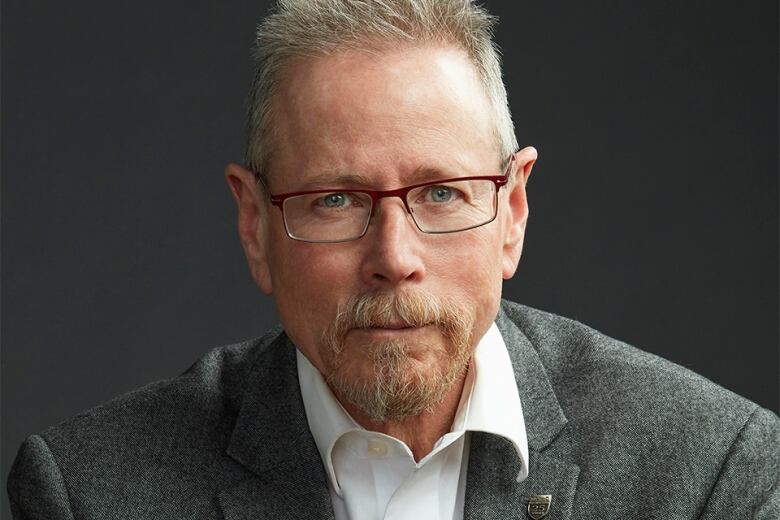B.C. has Canada's 3rd-highest number of transgender, non-binary people per capita, latest census shows
More than 18,000 British Columbians identify as trans or non-binary

More than 18,000 people across British Columbia and more than 100,000 across Canada identify as transgender or non-binary, according to Canada's first census that attempts to capture these underrepresented communities.
On Wednesday, Statistics Canada released data from the 2021census including information about gender identity, divided intofive categories:Transgender women and men, cisgender women and men, and non-binary people.
Previous censuses only recorded whether respondents identified as men or women.
The census found that amongB.C.'s population aged 15 or older, there are:
- 5,450 transgender women
- 4,460 transgender men
- 8,420 non-binary people
- 2,142,185 cisgender women, and
- 2,039,990 cisgender men
The first three identifiers makeup a combined total of 0.44 per cent of the B.C. population the third-highest rate amongprovinces and territories, after Nova Scotia (0.48 per cent) and Yukon (0.47 per cent).
In an emailed statement to CBC News, Statistics Canadasaid it limited analysis of gender diversityto people aged 15 or older because children and youth may not be fully aware of their gender identity when filling out the census questionnaire.
The agency said it will analyze the gender data of people under 15and will release its findingsin July.
First country to release census gender data
For the 2021census, StatisticsCanada asked two questions: sex assigned at birth, which could be either male or female;and gender identity, which may or may not align with sex assigned at birth.
The agency says Canada isthe first countryin the world to record gender identityin this way.
Anne Milan of Statistics Canada's Centre for Demography says she's proud of this change, which was madeafter five years of consultations with the public and international experts.
"It fills an information gap that was identified during the consultations," Milan said, adding that the new information will"better meet the needs of all Canadians."
Census data is often used by federal, provincial and local governments to help determine where and what kinds of services to provide to communities, as well as by businesses and other organizations to have a better understanding of the populations they serve.
More gender diversity in urban centres, among young people
Among the more than 30 million people aged 15 or above living across Canada, 100,810 people identify as transgender and non-binary, the census found.
The average age of transgender (39.4) and non-binary populations (30.4) are much lower than that of Canada's entire population (48).
Across the country, gender diversity is highest among those aged 20 to 24, with nearly one per cent being transgender or non-binary.
More than 90 per cent of non-binary people aged 15 or older in Canada live in metropolitan areaswith more than 100,000 residents. The highest concentration of transgender and non-binary people can be found in Victoria (0.75 per cent), Halifax (0.66 per cent) and Fredericton (0.6per cent).
Other urban areas in B.C. with high concentrations of transgender and non-binary populations include Nanaimo (0.56 per cent), Nelson (0.6 per cent), Prince George (0.46 per cent),Kamloops (0.44 per cent), Vancouver and Kelowna (both 0.42 per cent).

Questionscould be improved: Advocates
Aaron Devor, chair of transgender studies at the University of Victoria, says Canada has done a much better job than other countries, such as England and Wales, Scotland and Australia,on collecting data on gender and more detailed information is an important step.
Buthe said the census should have categorized gender identity as "woman" or "man" rather than "female" and "male," in order to avoid confusion with biological sex.

V.S. Wells, anon-binary and transgender freelance journalist who wrote a critique of the latest census, said some of the questions appeared exclusionary including not providing intersex options and not including alternatives to gendered terms such as "son" and "daughter" to describe family relationships.
Wells also said the census was a "slap in the face" to people who have gone through the process of changing their legal documents to reflect their gender identity only to be asked about their sex assigned at birth.
"It's like asking me to write down what weightI was born,and having that have any impact on what weight I am now," Wells said.
Statistics Canada says it asks about sex at birth in order to ensure historical and international comparability of census data.
Alex DeForge, the social impact co-ordinator at Vancouver-based LGBTQ resource centre QMUNITY, says the census could simply askfor gender andprovide respondents withseveral options and the chance towrite in other gender identities.

But DeForge says census gender data is a valuable resourcefor public policy research projects, especially those about people of intersectional identities.
"We can look a little bit more closely at how people experience the world as someone who is not just trans but also, say, racialized, because we know that racism is something that is going to differentially affect people who are gender-diverse as well as racialized," DeForge said.

To learn more about gender identity, listen toThey & Us, an award-winning CBC podcast that explores first-person stories of transgender and non-binary Canadians, available now onCBC Listen,Apple PodcastsandSpotify.












_(720p).jpg)


 OFFICIAL HD MUSIC VIDEO.jpg)
.jpg)



























































































